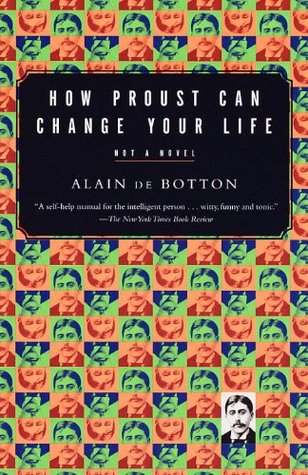More on this book
Community
Kindle Notes & Highlights
In reality, every reader is, while he is reading, the reader of his own self. The writer’s work is merely a kind of optical instrument which he offers to the reader to enable him to discern what, without this book, he would perhaps never have experienced in himself. And the recognition by the reader in his own self of what the book says is the proof of its veracity.
When two people part it is the one who is not in love who makes the tender speeches.
“My only consolation when I am really sad is to love and to be loved,”
“Love is an incurable disease.” “In love, there is permanent suffering.” “Those who love and those who are happy are not the same.”
and that we cannot therefore allow ourselves to judge the legitimacy of another’s pain simply on the basis of the pain we would have suffered had we been similarly afflicted.
in Proust’s view, we don’t really learn anything properly until there is a problem, until we are in pain, until something fails to go as we had hoped.
We suffer, therefore we think, and we do so because thinking helps us to place pain in context. It helps us to understand its origins, plot its dimensions, and reconcile ourselves to its presence.
We cannot be taught wisdom, we have to discover it for ourselves by a journey which no one can undertake for us, an effort which no one can spare us.
“Happiness is good for the body,” Proust tells us, “but it is grief which develops the strengths of the mind.”
Griefs, at the moment when they change into ideas, lose some of their power to injure our heart.
There may be significant things to learn about people by looking at what annoys them most.
The problem with clichés is not that they contain false ideas, but rather that they are superficial articulations of very good ones.
He told you there was no better way of proving your friendship than by accepting.” GEORGES DE LAURIS
More interesting than the letters we send our friends may be the ones we finish, then decide not to post after all.
our dissatisfactions may be the result of failing to look properly at our lives rather than the result of anything inherently deficient about them.
Q: Did he think that love could last forever? A: Well, no, but the limits to eternity didn’t lie specifically with love. They lay in the general difficulty of maintaining an appreciative relationship with anything or anyone that was always around.
Deprivation quickly drives us into a process of appreciation, which is not to say that we have to be deprived in order to appreciate things, but rather that we should learn a lesson from what we naturally do when we lack something, and apply it to conditions where we don’t.
If long acquaintance with a lover so often breeds boredom, breeds a sense of knowing a person too well, the problem may ironically be that we do not know him or her well enough.
Q: Was he against sex before marriage? A: No, just before love. And not for any starchy reasons, simply because he felt it wasn’t a good idea to sleep together when encouraging someone to fall in love was a consideration. Women who are to some extent resistant, whom one cannot possess at once, whom one does not even know at first whether one will ever possess, are the only interesting ones.
“Love? I make it often, but I never talk about it.”


